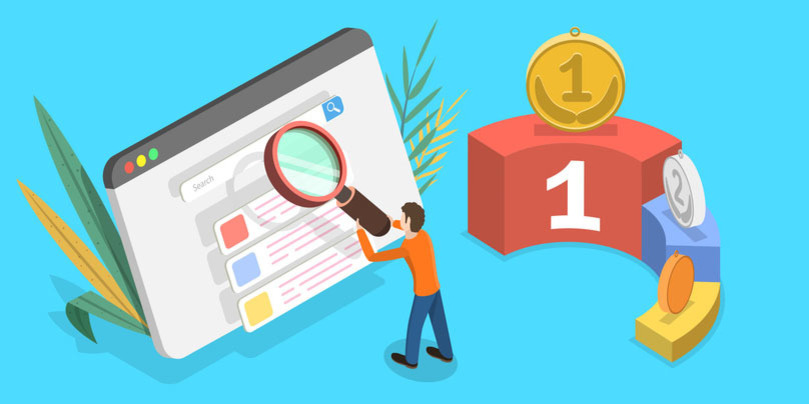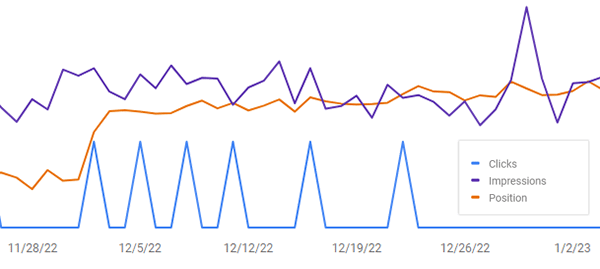How important is high quality content?
Published on 19th November 2022
Simply put, high quality content is your single most important ranking factor. It attracts visitors in to your website, it engages with them and it should always offer them value. Providing insight to your audience educates them on a subject in which you have experience, whilst simultaneously building trust in your brand.
There's no doubt that the internet is a vast and amazing place. No matter what question you need answered, Google has got your back! The large majority of queries will deliver a never-ending list websites offering you solutions to click on, which is great for the searcher but not so great for the website publishers who want to be found amongst the multitudes of others.
When looking through the search engine results pages (SERPs), we are quick to judge which site we think will be the most useful to our query. Whether that is because of the opening sentence, the layout or the URL, it doesn't take long to make a decision, click the back button and bounce off to find another site. But in order for your website to be displayed at the top of SERPs, Google needs to agree the information displayed on the page is of value to the visitor.
E-E-A-T Better!
Previously the E-A-T acronym (used by Google to determine quality) represented Expertise, Authoritativeness and Trustworthness, judging pages quality based on the credibility of the page, author and website. This has now been expanded, so that E-E-A-T (or Double E-A-T) also considers the experience of the author(s) when evaluating the quality of page content for search.

Let's briefly break this down into bite-sized chunks:
Experience - This new element is about establishing who has first-hand knowledge behind a piece of content, also known as "reconciliation" this signals to Google that the article author has experience and creditbility in the subject.
Expertise - Google explains the difference between this and experience as: “if you’re looking for information on how to correctly fill out your tax returns, that’s probably a situation where you want to see content produced by an expert in the field of accounting. But if you’re looking for reviews of a tax preparation software, you might be looking for a different kind of information—maybe it’s a forum discussion from people who have experience with different services.”
Authoritativeness - Considers the extent to which the content creator or website is known as the go-to source for the topic. While many topics have a variety of experts, this can also be judged by Google through topic clustering and backlinking.
Trustworthiness - Arguably the most important factor in understanding page quality. Trust is used by Google to determine if the page is “accurate, honest, safe, and reliable”. Proof of this can come from information held on your About or profile pages, through social proof and through on-page evidence.
Keep your content fresh!

Google enjoys fresh, relevant content which is regularly updated. This helps to prove that the information on your site is recent, relevant and potentially accurate in answering the vistors query. When you update your website with articles, products, services and new content, the search engine will stop by to re-visit your site and review the fresh update. Meaning you have the opportunity to achieve higher rankings based on the content you provide. Every time you update your site, search engine's take notice and re-arrange your site rankings. But please remember, more content is not key, quality is! So when you update your site, make sure you are keeping the content standards high. Try to diversify with multimedia content like including screenshots, infographics, videos and gifs.
Regular and relevant content

By publishing content regularly, you have more opportunity to include relevant keywords. After doing your research and understanding what terms your target audience are using to search, it makes it easier to grow the traffic to your site. Whether that is through blogs, updating old pages or creating new pages. By publishing content regularly it means your website gets crawled more, giving it more chance to rank higher than the previous crawl. Another advantage to creating regular content is that it gives you more to promote on your social media platforms! So creating more content really is a win, win!
A good tip is to keep an eye on what's trending and then create a backlog of content ideas, relevant to your industry, so you always have lots of inspiration to work from as and when you need it.
Users appreciate fresh content too

With Google's algorithim update that took place back in 2011, it means search terms featuring a trend or a time-sensitive topic will trigger Google to prioritise newer pages as they will see these as more up-to-date which makes complete sense! For example, if someone wants to find out about the vaccination regulations required to enter a certain country, Google will take the age of the webpage into consideration when deciding what sites to rank. Remember to use proper formatting for readibility.
Estimating freshness

According to Moz, Google estimates the freshness of your content based on many factors, such as:
Page inception date
The date it was indexed by Google
Amount of changes made to the updated page
Google understands large changes as a sign of freshness
Number of changes made to core content of the page
Changes to main body content adds more freshness than just adjusting date/time tags
Rate of page change
Frequent changes on the page signal more freshness
Rate of new page creation
Websites that add new pages more frequently are likely to get a higher freshness score
Freshness of backlinks to the page
Links from sites that the search engine considers "fresh" will also improve yours
But how can you improve your website's freshness score?

Check the search engine's results page (SERP's) for search terms you're wanting to rank for to see when the first 10 - 20 sites were published and work out their average age. Remember to give more weight to the top-ranking results.
Publish new, high quality content regularly.
Submit your updated sitemap on Google Search Console if you would like to speed the process of Google recrawling your site. Just remember that Google will eventually find the updates you've made so it wouldn't really be worth updating your sitemap for a few small changes.
Remember to update the old content too! Google will crawl pages based on the rate of content update. This means your page created back in 2010 will be re-crawled when you update enough sections of it.
But, what counts as a change?
Adding in new internal/external links
Updating images and alt tags
Adjusting headings and copy
Adding new widgets and interactive content

Some other key points that matter when it comes to high quality content:
Talk about unique topics and add your own perspective
Always review prior to publishing
Use analytical data to measure content performance and adjust your strategy where it needs it
Target a niche subtopic
Know your search intent and call to action
Much as AI has made some incredible leaps forward, connect with your audience by writing content for humans and not search engines.
The proof is in the pudding

The chart above demonstrates an increase in impressions, clicks and positioning by updating an existing piece of content. This was achieved by updating the page metadata, headings (H1's), images and adding a widget to the page. The improvements from these changes aren't immediate, you need to be patient to see what works and what doesn't.
Don’t yet have a website to publish your quality content on? We can help! We offer affordable web design services that are ideal for small to medium businesses, and creating your articles couldn’t be easier. Get in touch with our friendly team today to find out more.
Tagged as: search engine optimisation (SEO)
Share this post:



